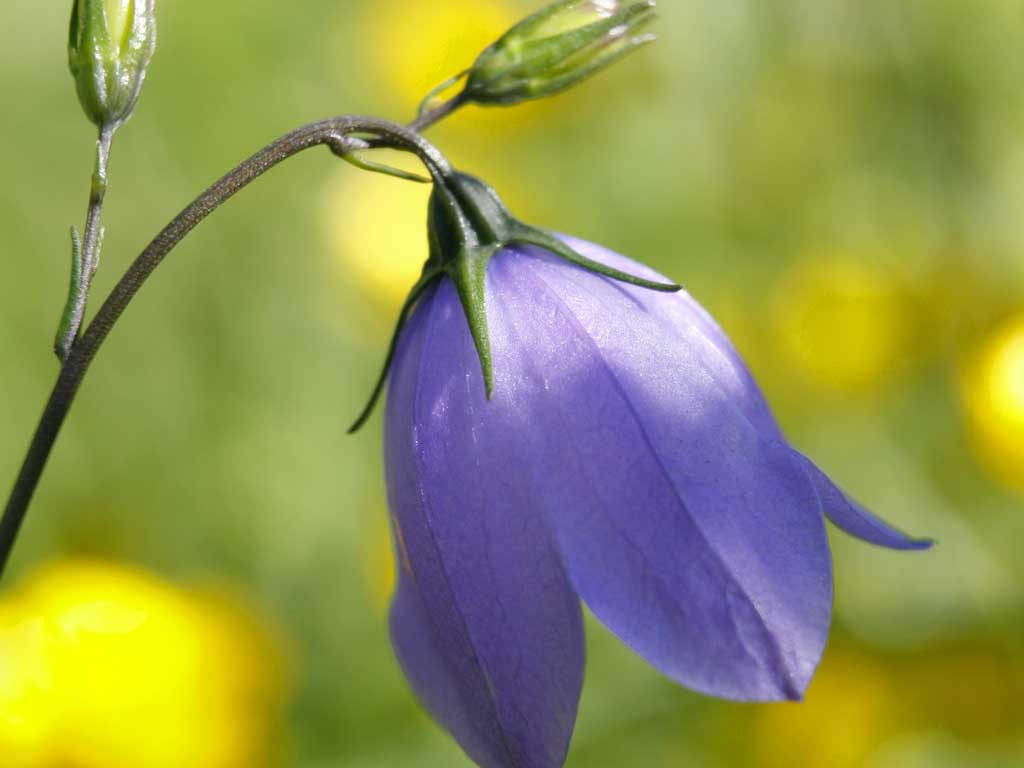Wild flowers are overpowered by exhaust fumes
Pollution blamed as nettles and grasses flourish – and force out much-loved species

Many of Britain's common wild flower species are disappearing because of nitrogen compounds falling from the sky, air pollution experts said yesterday.
Well-loved and familiar species such as birds-foot trefoil, harebells and eyebright are being crowded out by a few more robust plants. These grow more strongly because of the fertilising effect of the nitrogen, which originates in vehicle exhausts and agricultural fertilisers. It is borne on the wind and deposited on the land – about 400,000 tons of it in Britain every year.
As a result, in many places a small number of plants such as stinging nettles, cow parsley and some grass species are now outcompeting and suppressing almost everything else – for the majority of Britain's smaller wild flowers need poor soils to flourish alongside each other. If the soil is heavily fertilised, they lose out – and nearly 100 species have been found to be affected.
"It is a dramatic change to the flora of Britain," Professor David Fowler, of the Centre for Ecology and Hydrology, said yesterday at the start of a major review of UK transboundary air pollution – pollution originating in Britain and being exported, or coming into the country from the outside. "We're essentially changing the fertility of the whole country, even the remote parts, by fertilising the landscape through the atmosphere. It is bad for our wild flowers as a whole. The tendency is to think nutrients and fertiliser are good, but they're only good if they promote the growth of the things you're interested in. In this case, they're removing key species from the environment."
Sulphur emissions from UK power stations, which in the 1970s and 1980s produced acid rain over Scandinavia, have been substantially reduced. But although nitrogen emissions from vehicles havefallen, nitrogen deposition on land is unchanged over 20 years – partly because there is more nitrogen in the atmosphere from agricultural fertilisers. Dr Carly Stevens, of the University of Lancaster, said hardly anyone outside scientific circles realised it was happening. "If you talk to old people they will say that there were more wild flowers when they were young. People think the old always look back favourably, but this is a case where it is true."
A study co-authored by Dr Stevens last year found 91 species adversely affected by nitrogen deposition.
Cow parsley: The feathery creamy-white flower heads make a fine sight lining a country lane in May – but they are so numerous because the plant is outcompeting everything else.
Stinging nettle: The nettle is another species which is flourishing mightily under conditions of heavy nitrogen deposition. Examples have been found which are 13ft tall.
Harebell: The harebell, which appears at the end of summer, is one of our frailest wild flowers – its stalk is as thin as a wire – so it is easily outcompeted and shut out by grasses.
Bird's foot trefoil: A typical plant of roadside verges and grassy banks, now disappearing from many places. It is the food plant of one of our prettiest butterflies, the common blue.
Join our commenting forum
Join thought-provoking conversations, follow other Independent readers and see their replies
Comments
Bookmark popover
Removed from bookmarks